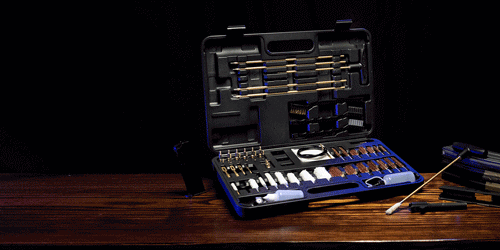Foreword
Hunting is an exciting and rewarding outdoor activity, but for beginners, it can feel overwhelming. Whether you’re planning to hunt small game or larger animals, there’s a lot to learn. To help you get started, here are five essential tips every new hunter should know.
Know Your Equipment Inside and Out
Before you head out into the wild, make sure you’re familiar with your gear. This includes your firearm or bow, hunting accessories, and your hunting clothing.
· Firearm Safety: If you’re hunting with a rifle or shotgun, always make sure it’s clean, loaded correctly, and ready for use. Understand how to handle, load, and unload your weapon safely.
· Accessories: You’ll need essential accessories like a gun cleaning kit, scope, binoculars, and a tactical vest to carry gear and ammo comfortably. Having everything in place and knowing how to use it will help avoid mishaps.
· Clothing: Invest in weather-appropriate gear like camouflage, boots, and gloves. Also, don’t forget essential hunting accessories like a tactical poncho to keep you dry in unpredictable weather conditions.

Master the Basics of Scouting and Tracking
Scouting and tracking wildlife is one of the most important skills you’ll need. Here are some basic strategies to keep in mind:
· Signs of Wildlife: Look for animal tracks, droppings, and signs of feeding (like chewed plants). Each animal has unique markings, so learning how to identify them will help you track and find your prey.
· Stealth: Move quietly through the woods to avoid startling animals. Use the wind to your advantage by hunting into the breeze so the animal doesn’t catch your scent.
· Patterns: Study the habits of the game you’re after. Do they prefer certain types of terrain or feed at specific times? Understanding their behavior will increase your chances of a successful hunt.

Understand the Importance of Patience
Hunting is not always about rushing to take a shot. Often, success comes down to being patient and letting the animals come to you.
· Be Still and Wait: Sometimes the best strategy is simply waiting in a tree stand or hiding in a blind. Avoid making unnecessary movements, and stay as still as possible. The more patient you are, the more likely you’ll spot game.
· Focus on the Details: While you’re waiting, stay alert and pay attention to the sounds of the woods. The rustling of leaves or distant calls could be your cue that an animal is approaching.

Practice Good Shot Placement
Hitting your target is one thing, but hitting it in the right place is crucial. Understanding where to aim will make your hunt more effective and humane.
· Study the Anatomy of Game: Every animal has vital organs that, when hit, will ensure a quick and humane kill. Know where to aim for a quick, ethical shot, whether you’re hunting deer, elk, or smaller game like squirrels.
· Practice Regularly: You don’t want to rely on luck when it’s time for the shot. Practice regularly at the range to build confidence in your shooting accuracy. The more you practice, the more natural your aim will feel when the real hunt begins.

Respect the Environment and Wildlife
One of the most important things you can do as a hunter is to respect the environment and the animals you pursue.
· Follow Local Laws and Regulations: Each region has its own hunting rules, including bag limits, season dates, and hunting zones. Be sure you’re fully aware of these rules and follow them to stay within legal and ethical boundaries.
· Leave No Trace: Always clean up after yourself in the field. Pack out all trash and spent cartridges, and avoid disturbing the natural habitat. Ethical hunters work to preserve the environment for future generations.
· Conserve Wildlife: Never take more than you need and avoid hunting endangered species. Your actions as a hunter directly affect the future of wildlife populations.






